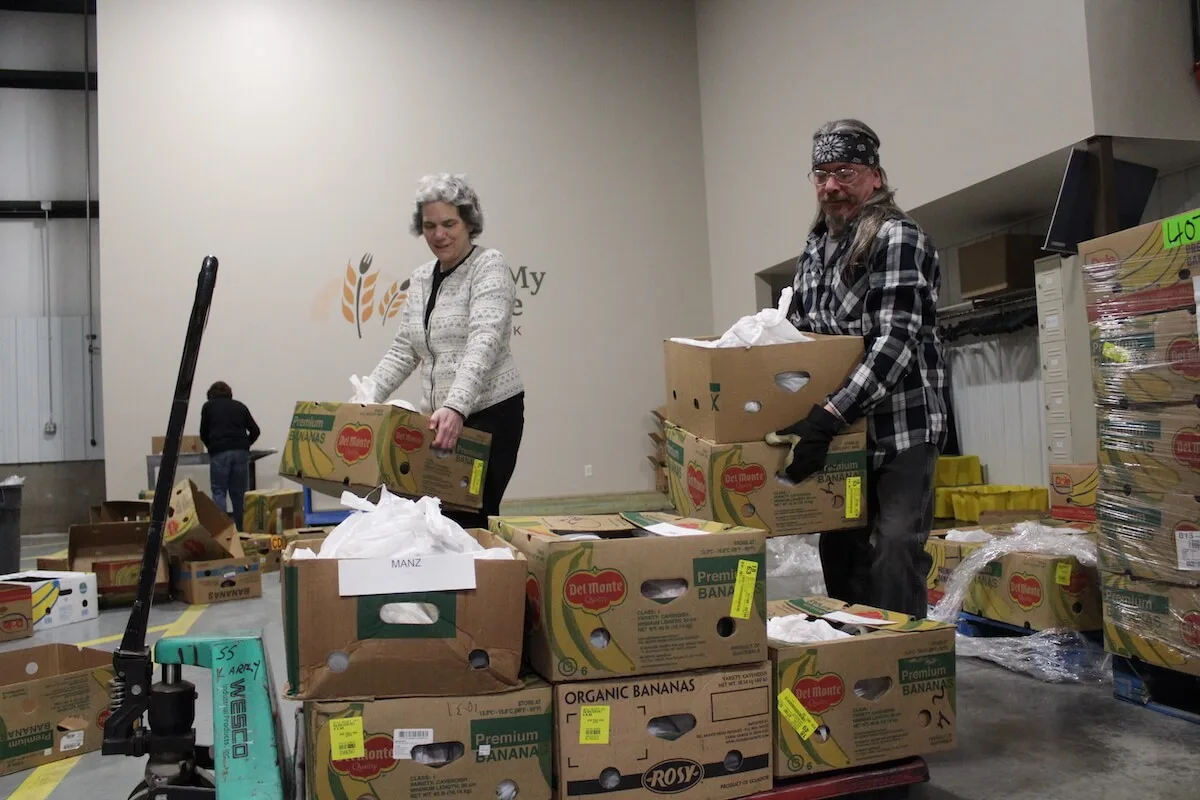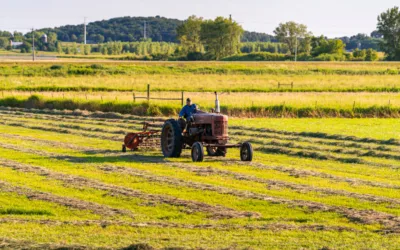
#image_title
Evers grows the list of CARES recipients with assistance to farmers and food banks
Already-struggling Wisconsin farmers reeling further from the coronavirus pandemic will receive help in the form of federal funding.
Gov. Tony Evers has announced the Wisconsin Farm Support Program that will pay $50 million in direct payments to the state’s farmers during the pandemic. It’s one of several allocations from the federal Coronavirus Aid, Relief, and Economic Security (CARES) Act the governor has announced this week, joining initiatives for health care efforts, renters assistance, and long-term care facilities.
“Farmers have asked for help, and this direct aid is meant to aid the farmers who are the foundation of our food system,” Evers said in a news release. “Farmers also serve as the backbone of many of Wisconsin’s local rural economies, and these direct payments will help revitalize local economies and jump-start Wisconsin’s food supply chain, which has been significantly disrupted by the COVID-19 pandemic,”
COVID-19 has further stressed an agriculture sector challenged by continued low milk prices for dairy farmers and lower prices amid higher costs for grain producers and other farmers. Beef, pork, and producers of vegetables and other products face dire conditions as well, leaders of Wisconsin agriculture organizations said.
Shutdowns because of health concerns posed by the virus also have presented significant challenges for food processors and those working in the state’s food supply chain. Federal aid has helped some agriculture sectors across the nation, Evers said, but Wisconsin farmers have not yet benefited.
The state Department of Revenue will oversee the aid program, and eligible farmers will apply to that department, which is working with the state Department of Agriculture, Trade and Consumer Protection. Farm subsidy payments could begin arriving as early as June.
Farmers are in desperate need of financial assistance, farm organizations said Thursday. A joint news release by the Wisconsin Farm Bureau Federation, Dairy Business Association, Wisconsin Corn Growers Association, Wisconsin Soybean Association, Wisconsin Pork Association, Wisconsin Cattlemen’s Association, Wisconsin State Cranberry Growers Association, and Wisconsin Potato & Vegetable Growers Association praised Evers’ announcement and said the pandemic could bankrupt many farms in the state.
The impact of the pandemic on the agriculture industry is “unprecedented,” they said, and has “severely twisted” supply chains and devastated the labor force.
“We know that these payments will not make up for what our farmers have lost financially” the release states. “However, this assistance will provide support to help them cash flow and continue their vital mission of providing food to our nation during this crisis.”
Last month those groups sent Evers a letter requesting $50 million in direct farm payments from the federal funding in which they calculated the economic impact of the pandemic on state agriculture sectors.
Kara O’Connor, government relations director for Wisconsin Farmers Union, praised Evers for providing funding at a time when “farmers all across the board are struggling,” she said. Farmers who milk cows, raise beef or pork, or grow crops have been impacted by the COVID-19 shutdown, she said.
Even farmers growing flowers have been impacted as weddings and other events have been cancelled because of the virus.
“All farmers, large and small, have been impacted by this,” she said.
Details of how the money will be disbursed remain to be worked out. As the Evers administration continues that work, O’Connor said she hopes small farmers are included in the funding. Many were left out of previous CARES Act disbursements when they weren’t eligible for the Small Business Administration’s Paycheck Protection Program that in some cases funded large companies that weren’t facing financial hardship.
“There is a real concern about whether this funding is going to go to the small farmers or not,” O’Connor said of Wisconsin Farm Support Program dollars. “We don’t have an answer, but we are really hopeful that the governor will understand inclusivity.”
Evers also announced a new $15 million Food Security Initiative on Wednesday. The program will help food banks, pantries and other nonprofit organizations adapt to new public health needs, such as social distancing, curbside pickup or delivery services. The initiative will also help connect organizations with local food producers and processors.

A love letter to the working class, from Gwen Frisbie-Fulton
It started in the back seat of my family’s Jeep Cherokee, the one with the broken AC and vinyl seats that stuck to my thighs in the late summer...

Wisconsin farmers left holding the bill after Trump freezes contracts
Wisconsin farmers are among a growing number of Americans facing debt after the Trump administration’s freeze on federal contracts. It’s a ‘kick in...

CSA 101: Your guide to securing fresh produce directly from Wisconsin farmers
While many Wisconsin farmers’ markets have significantly downsized and moved inside or closed for the winter, there’s still an easy and affordable...

Survey: Rural Wisconsin workforce and families are hurting due to childcare gaps
The lack of childcare in Wisconsin’s rural areas is keeping people out of the workforce, or is forcing them to work part-time, according to an early...




